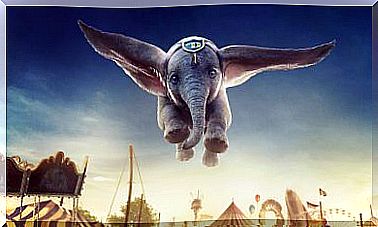The Dangers Of Excessive Self-esteem

Excessive self-esteem is neither positive nor healthy. This overconfidence in oneself, as well as the hypervaluation of the ego, very often leads to very problematic behaviors and attitudes. An example of this we see in those people who advance through life with an air of superiority, refusing to accept their own mistakes and at the same time outlining the shadow of an obvious narcissism.
We know that the topic of self-esteem is undoubtedly one of the favorites in the field of personal growth. Every year numerous publications are released on the publishing market aimed at teaching us how to strengthen this psychological muscle so basic to our well-being. However, something that is not always affected is the somewhat darker reverse side of this dimension.
For example, something that we must be clear about is that the antidote to low self-esteem is far from being high self-esteem. Any excess is dangerous and harmful. Thus, not because we are missing something should we cover it in large quantities, because then, far from solving something, we will be shaping a new problem.
It is therefore important to clarify what we mean by healthy self-esteem. We live in a time where it is also common for us to be sold on the need to maximize areas such as leadership, self-esteem, self-efficacy or self-confidence. But we must be clear that the ‘the more the better’ is not always positive or appropriate. Let us therefore see where the limit of authentic well-being is.

What is the person with excessive self-esteem like?
One of the most interesting books of the social psychologist Albert Bandura is without a doubt Self-efficacy, how we face changes in today’s society . Something that makes us clear in this work is that aspects such as perceived efficacy and self-esteem are two key factors to overcome difficulties and achieve our fulfillment in each of our scenarios.
Now, among the most damaging dynamics that make it impossible for human beings not only to achieve their goals, but also happiness, is low self-esteem and excessive self-esteem. One is as negative as the other. Let’s know what the person with an inflated or excessive self-esteem is like.
High self-esteem and a world without limits
There is an aspect that is frequently pointed out from the field of child psychology. Our children need to understand early that the world has limits, that there are rules, and that we don’t always get what we want. Tolerating frustration is a core subject in life and not doing it can undoubtedly lead to more than one problem.
Many children and young people are educated in the idea that they can have what they want. They are little emperors who feel worthy and with enough authority to do, achieve and have everything they want. Educating them to have such gleaming, inflated and oversized self-esteem leads them to engage in self-centered, abusive, arrogant behavior and no impulse control.
High self-esteem and its dangers usually have their origin in education.
Excessive self-esteem does not lead to success or happiness
Beyond what we may think, having a 200% reserve of self-esteem will not make our engine take us to the pinnacle of success. On the contrary:
- High self-esteem makes these people think that many of the projects, tasks or jobs that are proposed to them are below their worth. That pride means that they end up losing many opportunities.
- Their arrogance, the idea that they are deserving of everything they want, creates great distances from their social environment. Your accused ego creates great discomfort.
- They are blind to their own mistakes and do not learn from them. If they fail at something, it is the fault of others, never of oneself.
- At a relational level, they tend to act either as abusers or, like those narcissists who are unable to see more perspectives than their own. Something like this generates serious emotional, work, friendship, etc. problems.

Inflated self-esteem and delinquency
Criminal behavior was long associated with low self-esteem. However, in recent years it has been shown that excessive self-esteem is also correlated with violent acts. As a study by Dr. Robert Roy F. Baumeister of Princeton University explains, the superiority of the self is a decisive factor in many criminal acts.
There are many criminal profiles that are characterized by that dark triad where narcissism, Machiavellianism and psychopathy go hand in hand with that high self-esteem that justifies and considers their adverse behavior valid. They are people with an oversized sense of self and with the awareness that they can have whatever they want. The means to achieve this are not important.
As we can see, the reverse of self-esteem hides a certain darkness and a danger to take into account. It is clear that low self-esteem has its risks, as does the other extreme. The key is to achieve that perfect balance where we work with a healthy appreciation for ourselves, where, of course, the respect of others fits.
Self-esteem is after all the art of self-care, never the unhealthy excess that leads to narcissism.









